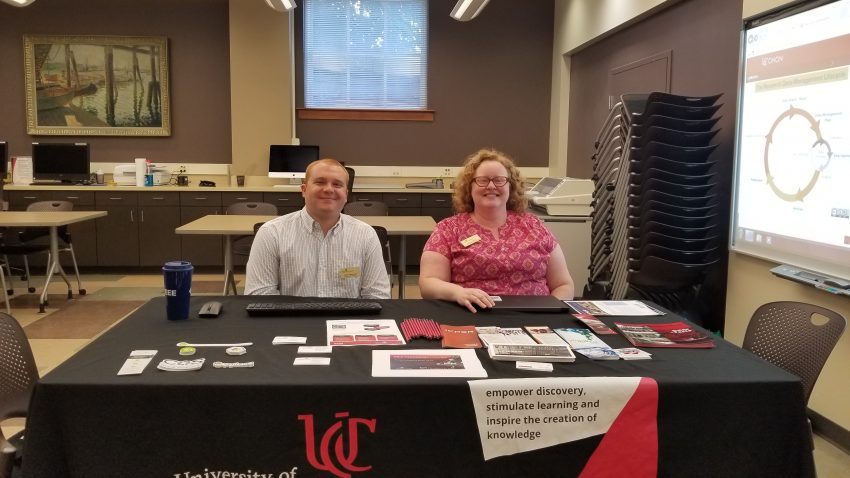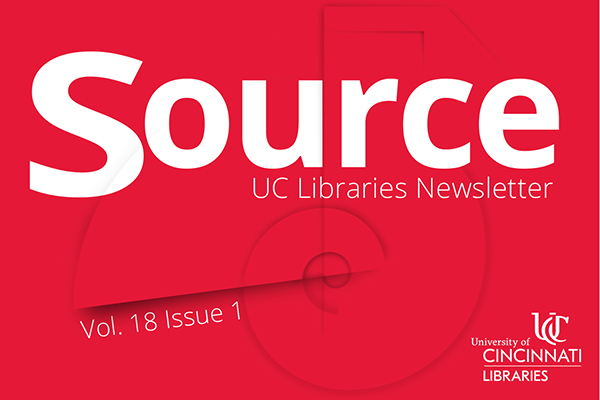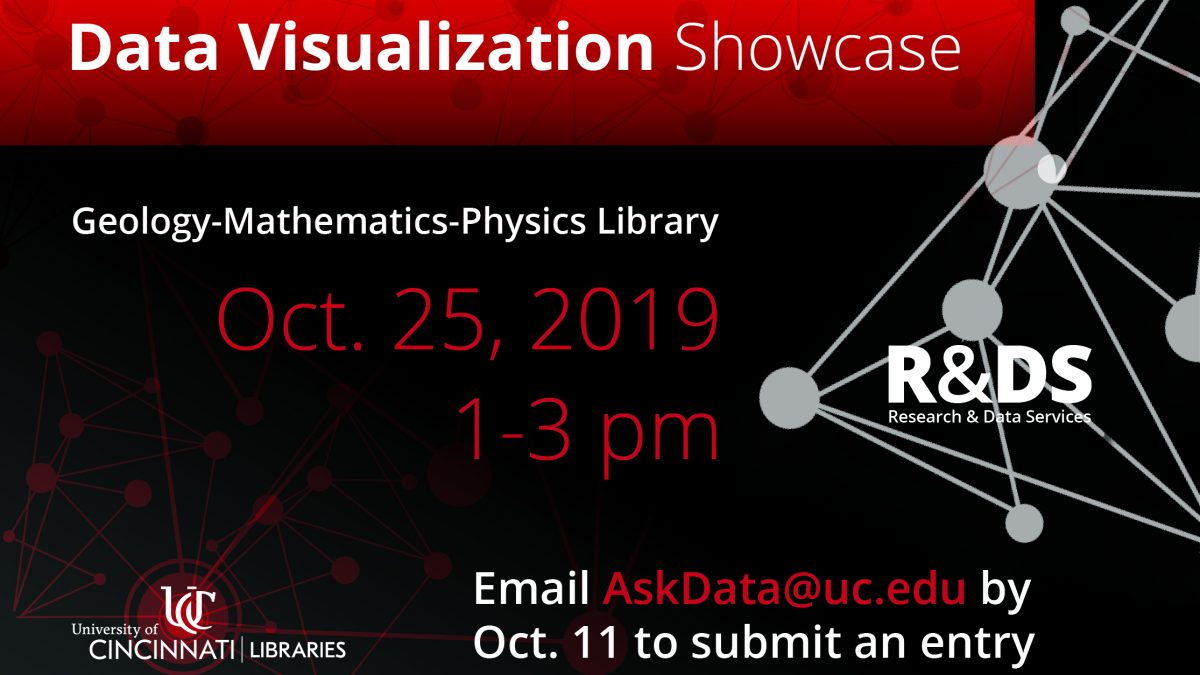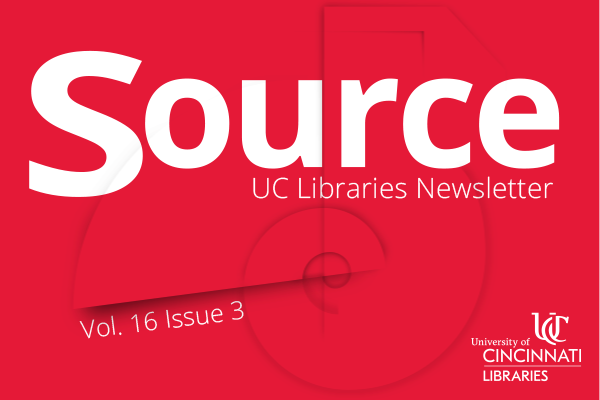
Richard Johansen and Rebecca Olson from UCL RDS at CECH library for office hours.
On Thursday, September 19, 2019, the University of Cincinnati Libraries Research & Data Services team held office hours in the College of Education, Criminal Justice and Human Services (CECH) Library. Richard Johansen, data visualization specialist, and Rebecca Olson, business & social science informationist, spent two hours talking to students and faculty about data visualization, data management, Scholar@ UC, ICPSR and python and R workshops.
In addition, students and faculty from computer science and education majors chatted with R&DS about the Open Science Framework, ORCIDS, and UC’s own data repository, Scholar@UC. Visitors learned that the library offers many workshops to assist researchers, including survey administration through REDCAP, tips for best practices in the Research Cycle, Spreadsheet Best Practices, Intro to Data Visualization in R, QGIS and more.
Research & Data Services offers assistance with ORCIDs, the Open Science Framework, R programming, Data Visualization, and how the research cycle can be improved through data management practices. Please contact us at ASKDATA@uc.edu or stop by our next office hours for more information. Our workshops are held around campus and are open to all. Spreadsheet Best Practices, Cleaning Data with Open Refine, and Intro to ICPSR will all be held this fall at the CECH library.
Richard and Rebecca will return to CECH on October 24th from 11:00 am – 1:00 pm. Office hours will also be in the Faculty Enrichment Center, lobby of the Walter C. Langsam Library and the Donald C. Harrison Health Sciences Library later this fall. Stay tuned!

 Read Source, the online newsletter, to learn more about the news, events, people and happenings in UC Libraries.
Read Source, the online newsletter, to learn more about the news, events, people and happenings in UC Libraries.
 PLEASE NOTE: THIS EVENT HAS BEEN CANCELLED.
PLEASE NOTE: THIS EVENT HAS BEEN CANCELLED.
 Read Source, the online newsletter, to learn more about the news, events, people and happenings in UC Libraries.
Read Source, the online newsletter, to learn more about the news, events, people and happenings in UC Libraries.